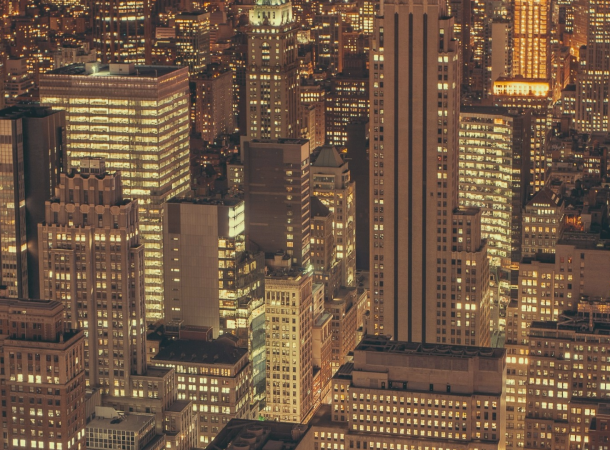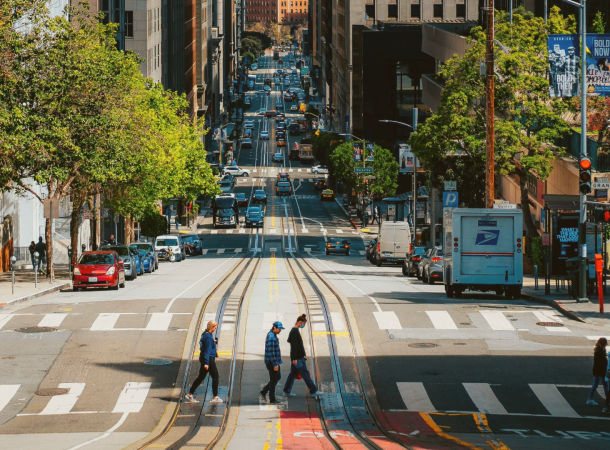
Most Racially Diverse Countries in 2024
Our world resembles a prism reflecting infinite hues, with all its diversity. So why not embark on a riveting expedition to explore the many shades of these hues?
Leave behind the well-trodden paths and venture into the uncharted territories where the true essence of humanity thrives, to embark on a quest that transcends boundaries and conventional norms, delving deep into the undercurrents of multicultural coexistence, exploring the most racially diverse countries in the world.
Let the Chromatic Chronicles begin, then, for there is a kaleidoscope of beauty awaiting our exploration!
Is Racial Diversity Increasing Globally?
In the interconnected world of unprecedented mobility, immigration is reshaping countries and fueling an incredible surge in diversity. People from all walks of life seek better opportunities, escape persecution, or simply explore new cultural horizons, crossing borders with their unique identities, languages, and traditions.
This influx of diverse populations breathes life into societies, creating a vibrant tapestry of perspectives and experiences. It’s a catalyst that challenges the status quo, sparks innovation, and nurtures a global sense of connection.
As cultures intermingle, an exciting fusion takes place. Assimilation and hybridization give birth to fresh traditions, artistic expressions, and mouthwatering culinary delights. The result? Communities burst with vitality, where the exchange of ideas and values thrives, fueling dynamism and creativity.
Embracing diversity is not without its challenges, but the rewards far outweigh the complexities. By tapping into the collective strengths of diverse populations, societies transcend boundaries, creating a harmonious and inclusive world that celebrates our shared humanity.
In this ever-evolving global landscape, immigration acts as a powerful force, shaping the destiny of nations, and redefining the rich mosaic of cultures that make up our beautiful planet. Let us embrace this colorful tapestry, as we weave a future that cherishes and harnesses the power of diversity.
Is Racial Diversity Increasing Globally?
In the interconnected world of unprecedented mobility, immigration is reshaping countries and fueling an incredible surge in diversity. People from all walks of life seek better opportunities, escape persecution, or simply explore new cultural horizons, crossing borders with their unique identities, languages, and traditions.
This influx of diverse populations breathes life into societies, creating a vibrant tapestry of perspectives and experiences. It’s a catalyst that challenges the status quo, sparks innovation, and nurtures a global sense of connection.
As cultures intermingle, an exciting fusion takes place. Assimilation and hybridization give birth to fresh traditions, artistic expressions, and mouthwatering culinary delights. The result? Communities burst with vitality, where the exchange of ideas and values thrives, fueling dynamism and creativity.
Embracing diversity is not without its challenges, but the rewards far outweigh the complexities. By tapping into the collective strengths of diverse populations, societies transcend boundaries, creating a harmonious and inclusive world that celebrates our shared humanity.
In this ever-evolving global landscape, immigration acts as a powerful force, shaping the destiny of nations, and redefining the rich mosaic of cultures that make up our beautiful planet. Let us embrace this colorful tapestry, as we weave a future that cherishes and harnesses the power of diversity.
10 Most Racially Diverse Countries
The table below shows the ten most racially diverse countries in the world, in accordance with the relevant ethnic fractionalization:
Country | Ethnic Fractionalization | Ling. Frac. | Relig. Frac. | 2023 Population |
Uganda | 93.02% | 92.27% | 63.32% | 48,582,334 |
Liberia | 90.84% | 90.38% | 48.83% | 5,418,377 |
Madagascar | 87.91% | 2.04% | 51.91% | 30,325,732 |
Dr Congo | 87.47% | 87.05% | 70.21% | 102,262,808 |
Republic Of The Congo | 87.47% | 68.71% | 66.42% | 6,106,869 |
Cameroon | 86.35% | 88.98% | 73.38% | 28,647,293 |
Chad | 86.2% | 86.35% | 64.11% | 18,278,568 |
Kenya | 85.88% | 88.6% | 77.65% | 55,100,586 |
Nigeria | 85.05% | 83.16% | 74.21% | 223,804,632 |
Central African Republic | 82.95% | 83.34% | 79.16% | 5,742,315 |
Tips to Promote Inclusivity and Cultural Integration in Racially Diverse Countries
#1 Foster Dialogue and Understanding: Encourage open and respectful dialogue among different ethnic groups to foster understanding and bridge cultural gaps. Create platforms and initiatives facilitating meaningful interactions, allowing individuals to share their experiences, traditions, and perspectives.
#2 Embrace Cultural Education: Promote cultural education and awareness in schools, universities, and communities. Incorporate diverse perspectives into curricula, teaching materials, and extracurricular activities, which help individuals gain a deeper understanding of different cultures, fostering empathy and respect.
#3 Celebrate Diversity: Organize multicultural events, festivals, and exhibitions that celebrate the diverse heritage within the country. Encourage participation from all ethnic groups, showcasing their music, dance, art, cuisine, and traditional customs. Such celebrations create opportunities for cross-cultural interactions and appreciation.
#4 Support Cultural Exchange Programs: Develop and support programs that facilitate cultural exchange between different ethnic communities, including initiatives such as community events, language exchange programs, and mentorship opportunities, promoting interaction and mutual learning.
#5 Equal Opportunities and Representation: Ensure equal opportunities for all ethnic groups in areas, such as education, employment, and governance. Implement policies that promote diversity and inclusion, and actively seek representation from diverse backgrounds in decision-making processes and public institutions.
#6 Address Discrimination and Bias: Take proactive measures to address discrimination and bias in all its forms. Implement anti-discrimination laws, promote diversity training in workplaces, and raise awareness about implicit biases. Encourage reporting mechanisms and support systems for victims of discrimination.
#7 Invest in Community Building: Create spaces and initiatives that foster social cohesion and community building. Support community centers, cultural organizations, and grassroots initiatives that bring people from different ethnic backgrounds together. Encourage collaborations on projects that benefit the entire community.
#8 Language and Communication: Promote multilingualism and language learning as a means to bridge communication gaps and enhance cultural understanding. Provide resources and support for individuals to learn languages spoken by different ethnic groups within the country.
#9 Recognize Indigenous Rights: Acknowledge and respect the rights of Indigenous communities, including land rights, cultural preservation, and self-governance. Involve indigenous leaders in decision-making processes that affect their communities, ensuring their voices are heard and their traditions are preserved.
#10 Government Policies and Leadership: Enact inclusive policies that prioritize diversity, equality, and cultural integration. Foster leadership that reflects the country’s ethnic diversity, promoting representation and inclusivity at all levels of government.
10 Least Racially Diverse Countries
Following are the ten least racially diverse countries around the globe:
Country | Ethnic Fractionalization | Ling. Frac. | Relig. Frac. | 2023 Population |
Vatican City | 0% | 0% | 0% | 518 |
American Samoa | 0% | 17.33% | 63.95% | 43,914 |
Northern Mariana Islands | 0% | 77.54% | 48.11% | 49,796 |
Faroe Islands | 0% | 0% | 31.47% | 53,270 |
Greenland | 0% | 21.88% | 45.92% | 56,643 |
Bermuda | 0% | 0% | 71.12% | 64,069 |
Isle Of Man | 0% | 0% | 47.29% | 84,710 |
United States Virgin Islands | 0% | 31.4% | 63.59% | 98,750 |
Aruba | 0% | 38.89% | 41.07% | 106,277 |
Jersey | 0% | 0% | 54.79% | 111,802 |
Most Ethnically Diverse Countries: Methodology
Ethnic fractionalization refers to the degree of diversity or heterogeneity within a population based on ethnic or racial groups. It measures the extent to which different ethnic groups are represented within a given society or country. This concept goes beyond a simple count of ethnic groups, delving into the complexity of their distribution and relative sizes.
Imagine a colorful mosaic where each tile represents a different ethnic group. Ethnic fractionalization captures the intricate patterns and proportions of these tiles, revealing the diversity within a society. It takes into account not only the number of distinct ethnic groups but also their relative presence and influence.
A highly fractionalized society reflects a diverse tapestry, with numerous ethnic groups coexisting and contributing to the social fabric. It signifies a mosaic where cultures intermingle, traditions overlap, and interactions between different groups shape the dynamics of daily life.
Conversely, a society with low fractionalization may have a more homogeneous ethnic composition, where one or a few dominant groups hold significant influence. The absence of significant diversity in such societies can influence social, cultural, and political dynamics in distinct ways.
Ethnic fractionalization is a nuanced concept that helps us understand the intricate interplay of cultures within a society. By examining this measure, we gain insights into the dynamics of social cohesion, cultural exchange, and the potential for harmonious coexistence. Recognizing and appreciating ethnic fractionalization allows us to appreciate the beauty and richness that arises from diverse perspectives, experiences, and traditions, ultimately fostering a more inclusive and understanding world.
Most Racially Diverse Countries: Conclusion
From the vibrant streets of cosmopolitan cities to the tranquil landscapes where history whispers through the wind, the most racially diverse nations stand as testaments to the beauty that arises when people of different backgrounds come together. It’s in their multicultural fabric where we find inspiration, innovation, and celebration of our shared humanity.
In a world yearning for understanding and connection, the lessons we glean from these diverse nations are invaluable. They remind us of the richness that lies beyond our own familiar borders and beckons us to embrace the beauty of our differences. By cultivating an inclusive mindset, we can build bridges that span across divides, fostering empathy, respect, and a shared vision for a harmonious global community.
FAQs
What are the factors that contribute to the racial diversity in countries?
Racial diversity in countries is influenced by various factors such as historical immigration patterns, colonial legacies, geographical location, and cultural exchange. These factors shape the presence and interaction of different ethnic groups within a society, contributing to its overall ethnic diversity.
Which are the most racially diverse countries in the world?
The most racially diverse countries in the world exhibit a tapestry of ethnic groups and cultures. Their populations comprise a rich mosaic of ethnic diversity, with a harmonious coexistence of various groups. Some of the most ethnically diverse countries include [mention country names] where a multitude of ethnic groups contribute to their vibrant cultural landscape.
How do ethnically diverse countries promote inclusivity and cultural integration?
Ethnically diverse countries embrace the values of inclusivity and cultural integration by fostering an environment of respect, acceptance, and appreciation for different ethnic groups. They often have policies and initiatives that promote equal rights, celebrate cultural diversity, and encourage cross-cultural interactions. This inclusive approach allows for the exchange of ideas, traditions, and experiences, enriching the social fabric of these diverse nations.
Are African countries known for their ethnic diversity?
Yes, African countries are renowned for their remarkable ethnic diversity. The continent is home to numerous indigenous African tribes, each with its distinct cultural heritage and traditions. The vibrant mosaic of ethnic groups across African countries contributes to the rich tapestry of cultural diversity found in the region.
Which countries have the least ethnic diversity?
Some countries exhibit relatively low ethnic diversity, with a dominant ethnic group or limited representation of different ethnic groups. These countries may have homogenous populations, predominantly consisting of a single ethnic group. However, it is essential to note that even within such countries, there may still be regional variations or indigenous communities that contribute to cultural diversity on a local scale.
How does ethnic diversity benefit societies?
Ethnic diversity brings a multitude of benefits to societies. It fosters social cohesion, promotes intercultural understanding, encourages creativity and innovation, and enhances economic development. The diverse perspectives, skills, and knowledge that arise from ethnic diversity contribute to the richness and dynamism of societies, creating a more inclusive and harmonious environment.
Can ethnic diversity also pose challenges for countries?
While ethnic diversity has numerous advantages, it can also present challenges. Ethnic tensions, cultural clashes, and inequalities may arise within diverse societies. However, addressing these challenges through effective governance, policies promoting social cohesion, and fostering dialogue can help mitigate conflicts and foster a sense of unity among diverse ethnic groups.
How do the most diverse countries celebrate and preserve their cultural heritage?
The most diverse countries often celebrate and preserve their cultural heritage through various means. They may have cultural festivals, museums, and cultural institutions dedicated to showcasing the traditions, languages, arts, and history of different ethnic groups. Additionally, these countries may have policies that support the protection and revitalization of indigenous languages and customs, ensuring the preservation of their cultural heritage for future generations.
Can ethnic diversity contribute to a country's global influence and soft power?
Absolutely. Ethnic diversity can enhance a country's global influence and soft power. By showcasing the richness and inclusivity of their diverse cultures, countries can attract tourists, foster international collaborations, and promote cultural diplomacy. The ability to embrace and celebrate ethnic diversity often enhances a country's reputation as an open, tolerant, and forward-thinking nation on the global stage.








